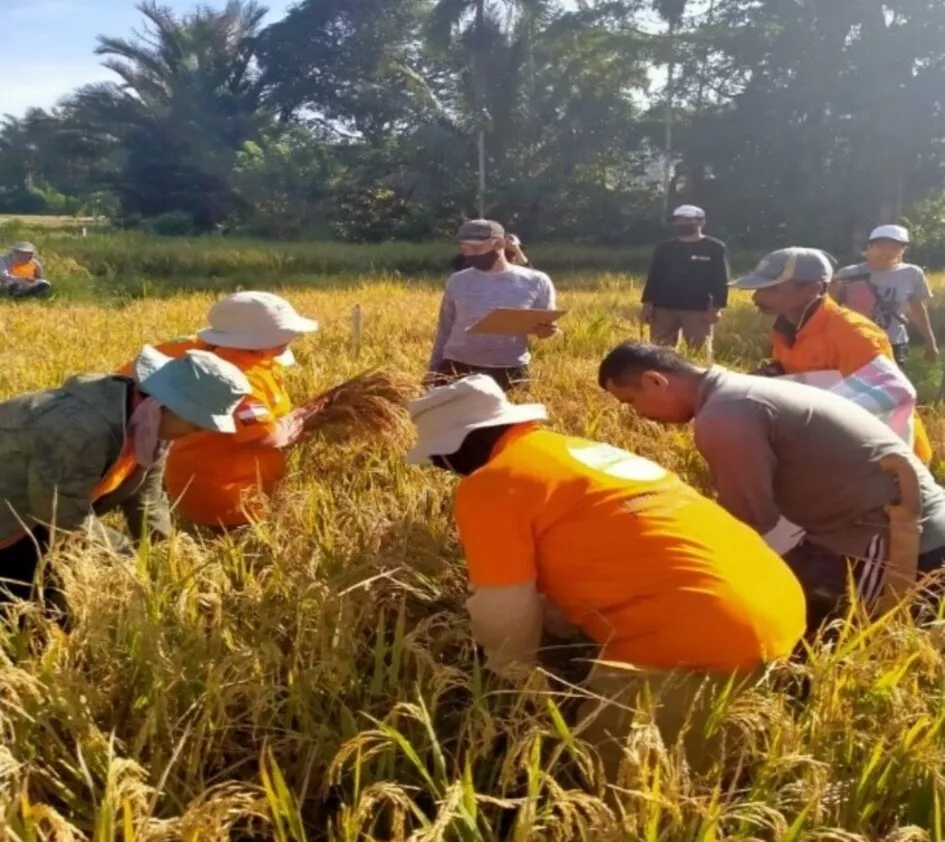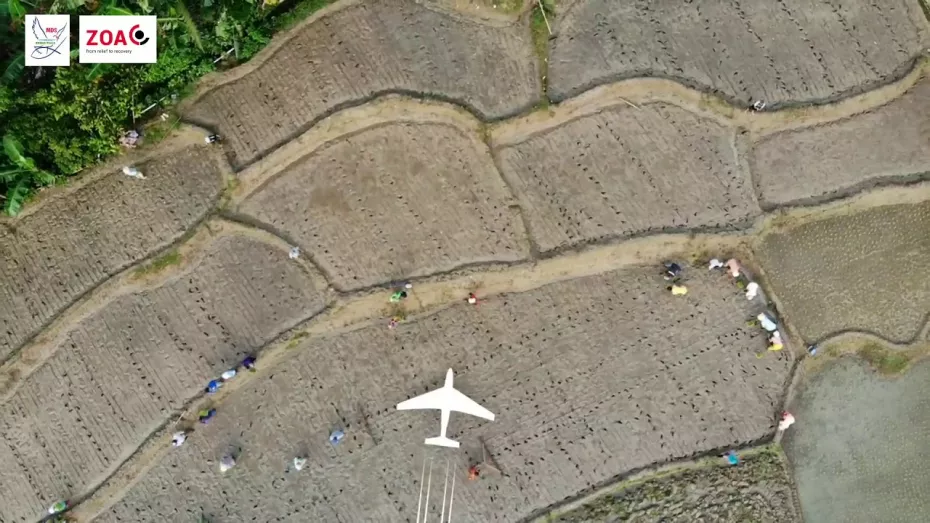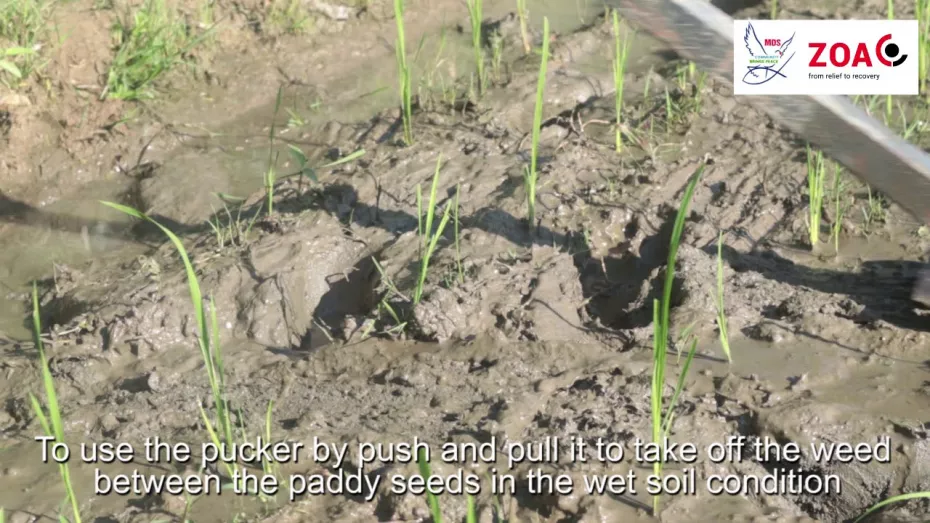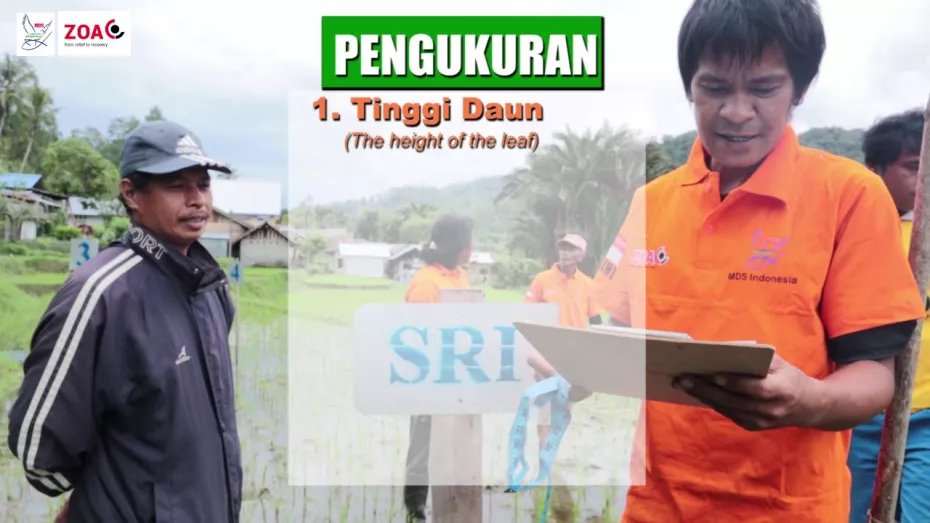The area of Kulawi faced a shortage of rice which was due to the low productivity of the rice paddy fields (wet rice planting), antiquated cultivation systems, using local rice varieties and inadequate pest and weed control techniques. The average yield of the rice paddies was only 5 ton/hectare while the standard in the well advanced area of Java is Indonesia is 7 ton/hectare. Till the start of this project, not many parties had attempted to increase the farmers’ knowledge, both technical and non-technical in conducting environmentally friendly cultivation systems.
Introduction of Field farmer Schools
In the Field Farmer Schools, the local farmers were introduced by specialists in SRI (System of Rice Intensification). Farmer groups from the 3 participating villages implemented the new system. A yield of 6.6 ton/hectare was the result, an increase of 30%! This has led many members of the Field Farmer Schools and also farmers outside the group to embrace to system. ZOA-MDS selected 5 farmers who were mentored intensively in this system to become role models and instructors for the next planting season.
Initial doubt by the farmers
In Kulawi, the farmers initially doubted the SRI cropping system, it did not suit with their habits. Moreover, one week after planting, the rice turned yellow and almost wilted, but the ZOA-MDS agricultural experts actively supported the farmer groups to intensively cultivate their fields with organic fertilizers, intensified weeding and pest control with natural pesticides. This made the rice plants to start growing well and slowly the group became more and more convinced of the new system.




